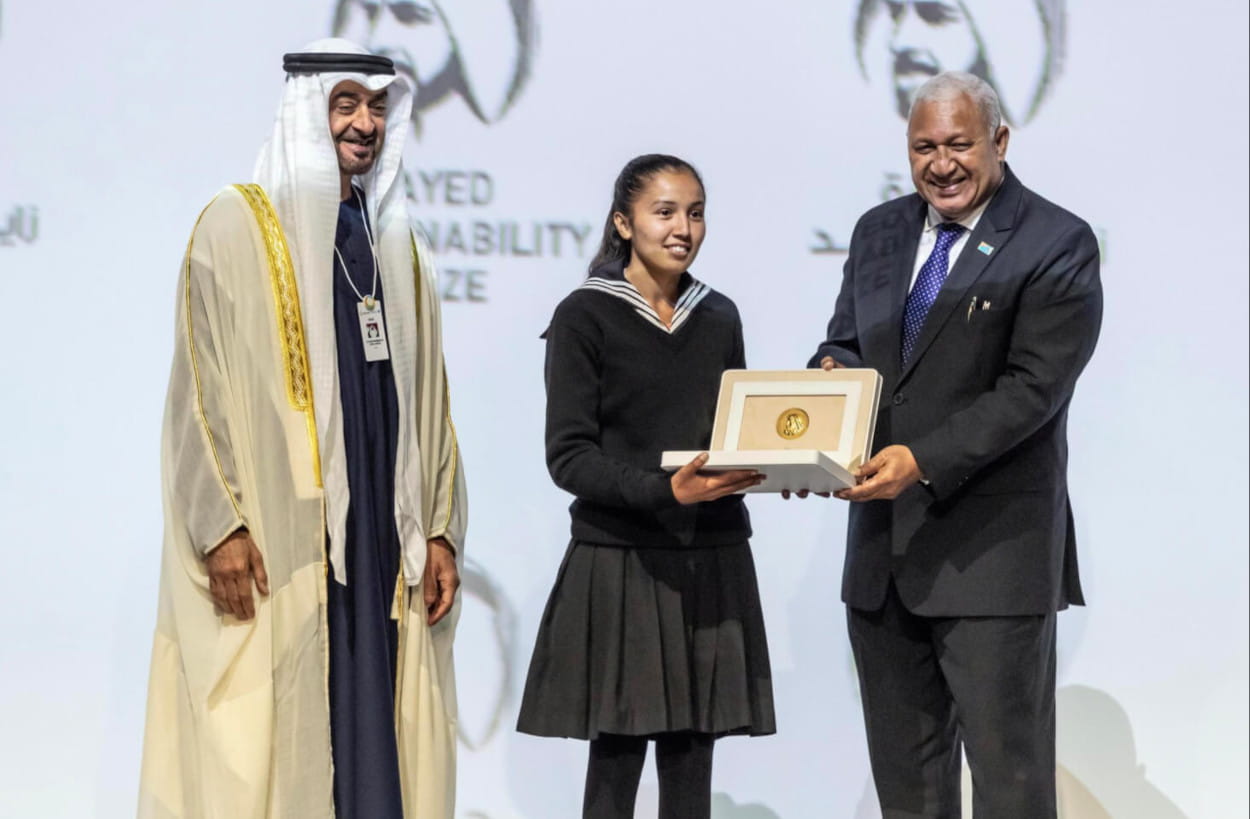The Bloom Nepal School, a 2020 Global High School award winner in the South Asia region, is celebrating the completion of its winning project proposal – a waste-to-energy converting biodigester and rooftop solar plant.
In April 2022, the private semi-boarding K-12 school in Mahalaxmi, Nepal, announced that the biogas units and 98 solar panels were successfully installed at its Lubhoo campus, which caters to more than 300 students. The new biodigester and solar plant provides efficient and sustainable energy supply at the school while at the same time ensuring minimal waste of resources.
A biodigester is a system that converts food waste into energy. Food waste is put into a tank, where microorganisms ingest it and produce methane gas. The methane gas is collected and released as a source of energy. The leftover product is called digestate which can be removed from the tank and used as fertilizer. By turning a waste product into energy and fertilizer, the school has implemented a tool that is helping their community meet their energy and cooking needs in a more sustainable, environmentally friendly way.
The Bloom Nepal School biodigester converts up to one tonne of organic waste into clean cooking energy, known as biogas. The biogas is now being used to cook food in the school’s kitchen, significantly reducing indoor pollution.
Additionally, the 98 solar rooftop panels are generating up to 440 watts of clean energy per day, powering the school with clean electricity while reducing its carbon footprint and energy costs.
In Nepal, where 66% of households use biomass fuels (wood, crop residues, and dung) for cooking – which are considered the least clean and efficient of all available sources of energy – clean cooking energy is key to meeting climate-mitigation goals and a range of development objectives.
Now, the school’s instructors are designing course curricula that can educate Bloom students about the biogas and solar technologies being deployed, and the benefits of sustainable systems in general.
The last two years have been tremendously rewarding for the Bloom Nepal School students. The experience of winning the Zayed Sustainability Prize and seeing their project proposal come to life has been truly transformative.
The school now plan to form partnerships with local municipalities to recycle their municipal solid waste and convert it into clean energy for the wider community, further expanding the impact of their sustainability project and its myriad benefits.
.svg?iar=0&hash=670E3638BC16C0DD69B262DD1184DEA8)

